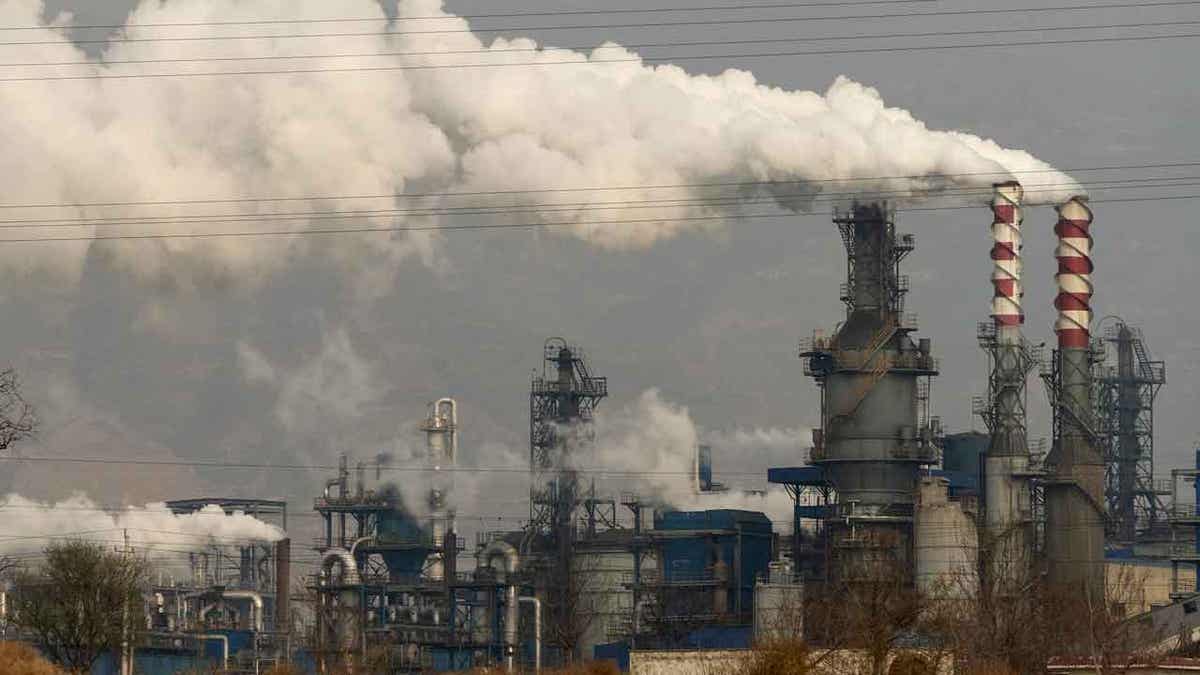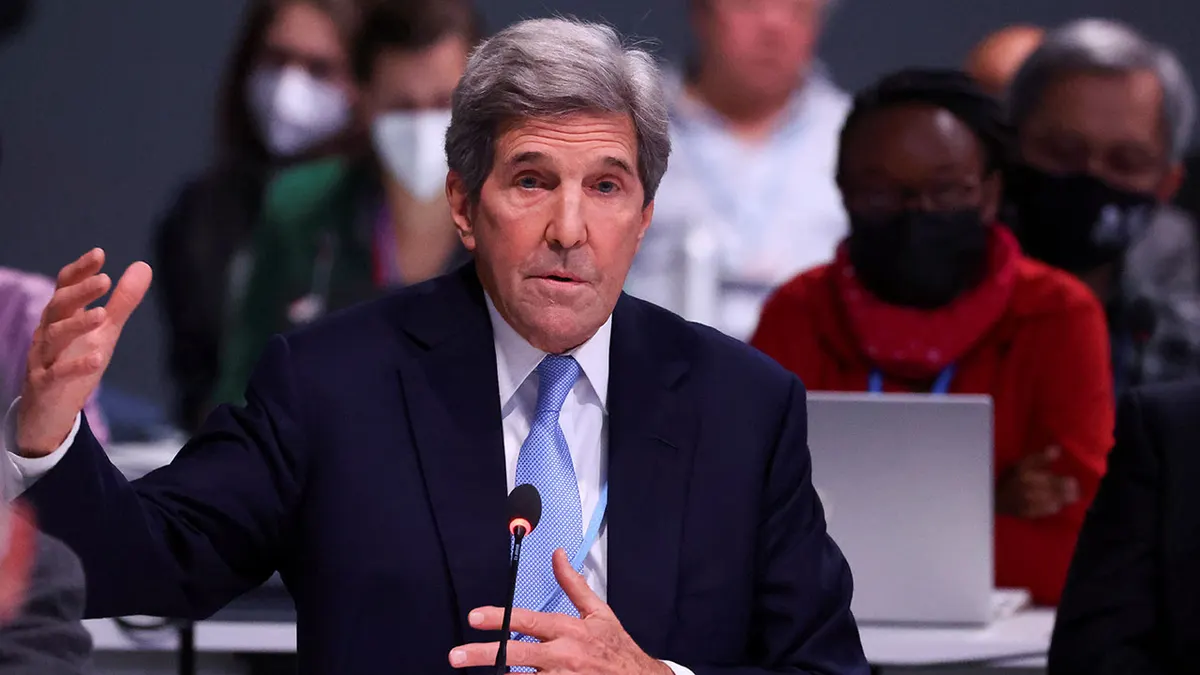House Oversight Committee investigates John Kerry’s talks with China
Senior Congressional correspondent Chad Pergram reports on the House GOP investigation on whether Biden climate envoy John Kerry's discussions with China might undermine the U.S. economy and foreign policy.
China unleashed a massive expansion of coal power generation last year despite pleas from Special Presidential Envoy for Climate John Kerry and Western governments for the nation to take more climate action, according to an independent analysis released Monday.
China permitted a whopping 106 gigawatts of new coal power capacity in 2022, roughly quadrupling the amount permitted in 2021, the analysis published by the Centre for Research on Energy and Clean Air (CREA) and Global Energy Monitor showed. The new generation is equal to about 100 large coal-fired power plants.
"China continues to be the glaring exception to the ongoing global decline in coal plant development," Global Energy Monitor analyst Flora Champenois said in a statement. "The speed at which projects progressed through permitting to construction in 2022 was extraordinary, with many projects sprouting up, gaining permits, obtaining financing and breaking ground apparently in a matter of months."
"This kind of a process leaves little room for proper planning or consideration of alternatives," Champenois added.
JOHN KERRY'S SECRET CCP NEGOTIATIONS PROBED BY GOP OVERSIGHT CHAIRMAN

Smoke and steam rise from a coal processing plant in Shanxi Province, China, on Nov. 28, 2019. (AP Photo/Olivia Zhang, File)
According to the American Geosciences Institute, burning coal produces more carbon emissions compared to burning any other fossil fuel. Coal power can have as much as twice the carbon footprint as natural gas.
China already accounts for about 27% of total global emissions, according to Rhodium Group. The nation's emissions output are equivalent to triple the total of the U.S., which is the world's second-largest emitter.
JOHN KERRY'S OFFICE CONSULTED LEFT-WING ENVIRONMENTAL GROUPS WHILE CRAFTING POLICIES, EMAILS SHOW
"If China is going to meet its climate commitments, as we expect, these new coal power plants are going to end up as short-lived and under-utilized malinvestments," CREA lead analyst Lauri Myllyvirta said in a statement Monday.
"To meet China’s goal of peaking CO2 emissions, the most urgent milestone is to scale up investments in clean power generation to cover all of power demand growth, which means declining demand for power generation from coal."
Although the Chinese government has expanded its renewable energy output in recent years, the report showed, it still mainly relies on coal power to meet its energy needs.

The Biden administration has aimed to work with China on climate change policy. (REUTERS/Kevin Lamarque)
The massive uptick in coal power generation comes as the U.S., led by Kerry, continues to push China to take climate action more seriously. Since assuming his position at the State Department in early 2021, Kerry has engaged in various private talks with Chinese counterparts, including two 2021 meetings that took place in China.
However, Chinese officials cut off negotiations with Kerry last year in response to former House Speaker Nancy Pelosi's, D-Calif., high-profile trip to Taiwan.
BIDEN'S ENERGY SECRETARY MET WITH CHINA-CONNECTED GROUP FUELING GAS STOVE BANS IN US
"From day one, the United States has made clear that our climate engagement with the PRC should remain separate from the other tough issues our two countries face for a simple reason: We are the two largest economies and largest emitters, and the entire world will suffer the consequences if we don't, together, lead the way on climate action," Kerry told Fox News Digital in a statement in October.
"The climate crisis is not a bilateral issue, it’s universal," he continued. "It is not about geopolitics or ideology, and no country should withhold progress on existential transnational issues because of bilateral differences."
Kerry added that the human and financial costs "will be catastrophic" if nations don't put aside differences and address climate change.

U.S. climate envoy John Kerry attends the United Nations Climate Change Conference in Glasgow, Scotland, on Nov. 12, 2021. Kerry's negotiations with China have stalled in recent months. (REUTERS/Yves Herman)
And while China has pushed forward with fossil fuel power expansion, the U.S. and other Western countries have aimed to prematurely retire existing fossil fuel power infrastructure. The U.S. shut down 11.8 gigawatts of coal power generation in 2022, bringing the total capacity below 200 gigawatts, according to Energy Information Administration data.
The U.S. is on track to have just 150 gigawatts of coal power capacity by 2029, the data showed. The large-scale retirements have sparked concerns among electric grid watchdogs and experts who have warned the grid may become unstable with so much power coming offline.
CLICK HERE TO GET THE FOX NEWS APP
"Parts of the North American bulk power system face resource capacity or energy risks as early as the summer of 2023," the North American Electric Reliability Corporation stated in a report in December.
"Capacity deficits, where they are projected, are largely the result of generator retirements that have yet to be replaced," it continued. "While some areas have sufficient capacity resources, energy limitations and unavailable generation during certain conditions (e.g., low wind, extreme and prolonged cold weather) can result in the inability to serve all firm demand."
Kerry's office didn't respond to a request for comment.














































